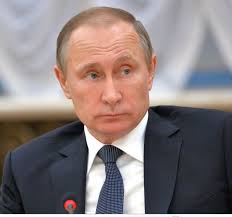
It’s useful to get a glimpse into what influential Russians are thinking in terms of geopolitics. This is excerpted from the Global Times July 20th interview with Andrey Bystritskiy, a Russian scholar who is also chairman of the Board of the Foundation for Development and Support of the Valdai Discussion Club, a notable Russian think tank. – Natylie
Editor’s Note:
The Biden administration is trying to unite allies to contain China and Russia. The latest example is that the US has announced plans to build a space base in the UK in a bid to stave off “threats” posed by Russia and China and to probe deep space. Meanwhile, China and Russia also announced in June the extension of the China-Russia Treaty of Good-Neighborliness and Friendly Cooperation. How will the China-Russia-US triangle develop in the future? What are Russia’s expectations of China-Russia and Russia-US relations? Andrey Bystritskiy (Bystritskiy), chairman of the Board of the Foundation for Development and Support of the Valdai Discussion Club, a Moscow-based think tank and discussion forum, shared his thoughts with Global Times (GT) reporter Li Qingqing on these issues.
GT: Russian President Vladimir Putin held a video meeting with Chinese President Xi Jinping on June 28, less than two weeks after Putin’s summit with his US counterpart Joe Biden. How do you evaluate the significance of the two meetings, as well as Russia’s expectations of China-Russia and Russia-US relations?
Bystritskiy: First of all, I would like to note that we live in a changing world, moreover, a world that is changing radically. President Xi Jinping, in his speech on the 100th anniversary of the founding of the Communist Party of China (CPC), noted that he would not allow any humiliation of China, and Russia’s position is the same. This means that a kind of competition has begun over how the emerging new world will be arranged. The meeting with Biden was aimed at avoiding additional conflicts. It was an attempt to somehow normalize relations, to find ways at least not to worsen the current situation, which is already bad. The meeting with the Chinese President was aimed at developing cooperation, at modeling a new world, at creating favorable conditions for mutual prosperity. This is the fundamental difference. China and Russia can work together to form a new world order. Moreover, they are already doing it. And they even have had certain achievements along the way. For example, in the development of the Eurasian area. The United States is obviously not quite ready for the kind of equal and constructive cooperation that can be observed between Russia and China. Today it is very important to understand that a new world is taking shape. Western countries are trying to defend their former dominant position, they and their elites have moved on to what can be called active defense. They are trying to strengthen their positions by weakening their competitors, including China, Russia and other countries. The Chinese and Russian position is different: shared prosperity should be a condition for the prosperity of everyone, of all countries, of the whole world. If I may say so, the United States and its allies are the past, clinging to their privileges. Russia and China are the future. Incidentally, this does not mean it is impossible for there to be productive cooperation between all countries, including the United States, Western countries, China and Russia, and other countries as well.
GT: July 9 marks the 50th anniversary of Dr. Henry Kissinger’s secret visit to China. The normalization of China-US relations ushered in an era of a China-Russia-US triangle. President Putin recently said that “The United States is now walking the Soviet Union’s path.” What is your opinion on this? How do you think the China-Russia-US triangle will develop in the future? Will another strategist like Kissinger appear in the US?
Bystritskiy: The appearance of a strategic thinker like Kissinger seems unlikely in the United States today. The fact is that 50 years ago, the USSR and the USA were relatively equal in strength. The USA realized that it could not defeat the USSR, that growing confrontation was not beneficial for the USA itself. The US elites were brave and inquisitive; they looked at the world rationally. Of course, they were not without selfishness, but still had the knowledge that they were not omnipotent. Kissinger then decided that turning to China and improving relations with it would help create a kind of balance, a balance of power, new to the world at the time. The novelty was that China was turning into another, completely independent and powerful player, although this transformation, of course, took a long time. The new balance created by Kissinger also implied a new interaction between Russia, the United States and China. And, surprisingly, this interaction has arisen. Of course, the development of relations did not quite follow Kissinger’s plan, perhaps even not at all. But, anyway, after 50 years we see that a strategy of constructive interaction between the three countries in the Russia-China-USA triangle is possible. But under one condition: the rationality of the elites, the ability to accept the world as it is, to realize the limits of their strength, their power. Alas, it is precisely the problem of rationality, of a sober assessment of reality today, that is an important problem, primarily for the United States itself. The efforts of all three countries are important for the development of relations in the China-Russia-USA triangle. But, from my point of view, the main efforts should be made by the United States. Today it needs to reconsider, and radically reconsider, the configuration of the current world and its role in it. At the same time, by the way, it needs to figure out what, in fact, are the interests of the United States.
GT: During Putin’s video meeting with Xi, the two sides announced they would extend the China-Russia Treaty of Good-Neighborliness and Friendly Cooperation. Article 9 of the treaty, which was signed in July 2001, says “When a situation arises in which one of the contracting parties deems that… it is confronted with the threat of aggression, the contracting parties shall immediately hold contacts and consultations in order to eliminate such threats.” How do you view the significance of this article to both parties today?
Bystritskiy: This is a very important article. It implies close cooperation and common views on the modern world, on the origin of threats in it. The development trajectories of China and Russia are not the same; our countries differ in size, population, and type of development. But there is more in common. Both Russia and China see the world in a similar way and they are sensitive to the concept of sovereignty. The most important thing is that our countries also want fair play and equal opportunities for all countries to participate in world development. The most important problem is that Western countries in a broad sense, first of all the United States, cannot give up the illusions of their superiority and their exclusiveness. There is no doubt that the contribution of the West to the development of modern civilization is enormous. One can only admire Western science, Western achievements, the social development of Western societies. However, it is strange to see that if within Western societies there is a desperate struggle for emancipation, for the rights of various minorities, then in foreign policy there remains an amazing bias, a stubborn desire to impose values, which, by the way, are often disputed within the Western countries themselves. There is a feeling that the ruling elites of the West are trying to win back on the foreign policy front what they are losing on the domestic one. And this is very dangerous. There is no doubt that the United States and its Western allies are actively trying to slow down development and undermine the stability of our countries. The behavior of the West in a pandemic situation has become a striking illustration. Instead of open cooperation, striving for cooperation with all countries of the world, consolidation of efforts, we see selfish manipulation of public opinion, attempts to use the situation to draw new dividing lines, demonstrate their superiority, and weaken independently developing countries, such as Russia and China. Therefore, Article 9 is important. It shows the consent of China and Russia to cooperation, their understanding of threats and readiness to confront together those who are ready for aggression against our countries.
GT: Putin approved the updated Russian National Security Strategy on July 2. The updated document includes the expansion of strategic cooperation with China and India in the list of Russian foreign policy priorities. What is your take on Russia prioritizing ties with non-Western major powers like China and India?
Bystritskiy: First of all, we should look at the prospects of development of the world. It is obvious that a new world configuration is emerging right before our eyes. Who would have thought in ancient Rome that the British province would become, centuries later, a prosperous empire, the ruler of the seas? It was hard to imagine. And the Spanish, having reached America, hardly believed that the countries of the New World after a while would turn into large, powerful and independent countries. But what used to take centuries is now moving much faster. And it would be short-sightedness not to see how rapidly the centers of development are changing. China has become the world’s leading economy in an unusually short period of time. India is also developing rapidly, albeit in a different way. In general, it seems that the whole Greater Eurasia is in motion. Billions of people were drawn into a new policy, into a new development of Eurasia. Our macroregion is acquiring its own face, its own development profile, perhaps even its own certain self-identity. Of course, this is a complex process full of contradictions. External competition has not gone anywhere either. Many people are very unhappy that countries that have recently been historically weak and dependent are suddenly gaining their agency, their voice. Incidentally, with regard to China, President Xi Jinping spoke about this, emphasizing the country’s independence, its own view of what is happening in the world, its role in the development of world events. Therefore, it is clear that for Russia it is important to develop stable relations with the leading countries of Eurasia, such as China and India. It should be noted here that the strength of Eurasia lies in the fact that it is great and powerful. By the way, many leaders of countries such as Germany and France (which are also part of Eurasia) understood and talked about the need for a kind of unity of Eurasia from the Atlantic to the Pacific. Of course, this is not an easy process, but the goal is also tempting. For Russia, it is important to strengthen the ties that cement Eurasia and protect its independence…
Read full interview here.


